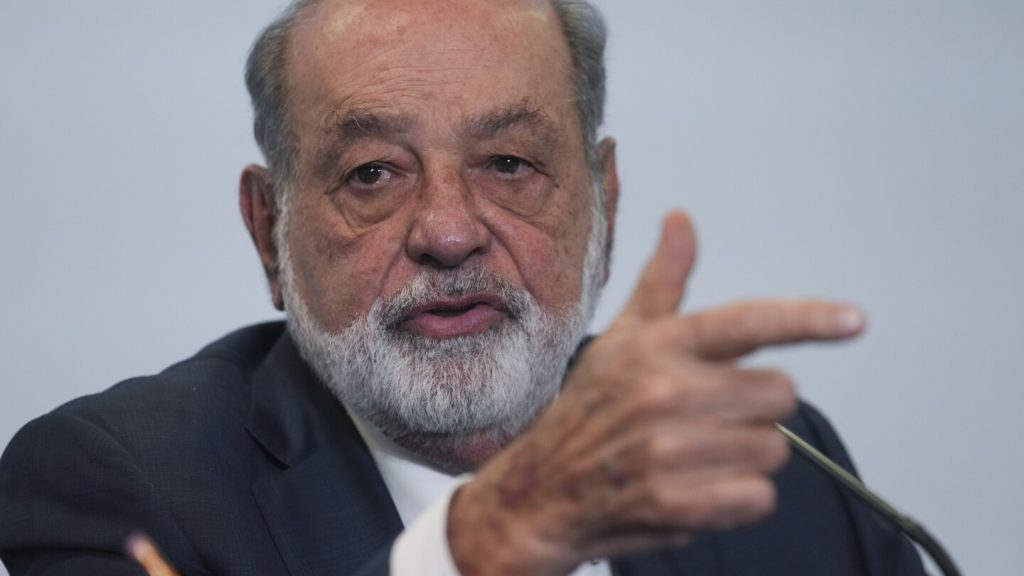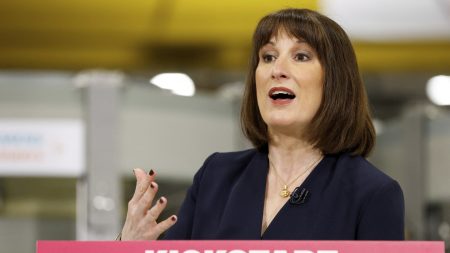Carlos Slim on Trump’s Presidency and Global Leadership
Carlos Slim, Mexico’s wealthiest individual and one of the richest people in the world, recently addressed a range of topics during his annual conference in Mexico City. A significant portion of the discussion centered on U.S. President Donald Trump, particularly as Trump begins his second term. Slim, who has extensive business holdings spanning multiple sectors, including communications, construction, and retail, shared his thoughts on Trump’s presidency and the challenges the U.S. currently faces. Slim remarked, “There’s a lot to do. He only has four years,” suggesting that Trump has a limited window to address the issues at hand. He described Trump as a “negotiator, not a terminator” during their earlier interactions, specifically during the negotiations for the U.S. free trade agreement. However, Slim acknowledged that the situation Trump faces in his second term is increasingly complicated. He emphasized the need for the U.S. to regain its global leadership, suggesting that Trump could adopt a dual approach—reducing costs in certain areas while channeling resources toward strategic investments.
Tariffs: A Failed Strategy According to Slim
Slim also shared his views on Trump’s approach to tariffs, which he bluntly described as ineffective. He argued that tariffs do not solve problems and instead lead to increased inflation and higher interest rates. Slim dismissed Trump’s recent announcement of 25% tariffs on steel and aluminum products, stating that such measures would have minimal impact on Mexico. He pointed out that many Mexican steel producers have operations in the U.S., which would mitigate the effects of the tariffs. Furthermore, Slim expressed optimism that a broader tariff on Mexican imports is unlikely, given the agreement between Mexican President Claudia Sheinbaum and Trump to pause tariffs in exchange for enhanced border security. Slim’s comments reflect his belief that tariffs are merely a negotiating tool rather than a viable long-term solution to trade imbalances or economic challenges.
The State of U.S. Manufacturing and the Need for Strategic Production
Slim also addressed the current state of U.S. manufacturing, criticizing the country’s reliance on outsourcing production abroad. He stated, “The United States stopped producing things,” and emphasized that this trend has led to a decline in domestic manufacturing capacity. Slim argued that the U.S. needs to reassess its production strategy, identifying which industries can realistically thrive domestically and which ones should be outsourced. He cited the semiconductor industry as a prime example of a sector where the U.S. can and should invest in domestic production to regain its competitive edge. Slim’s comments underscore his belief that a stronger focus on domestic manufacturing is essential for the U.S. to regain its economic and global leadership.
Trump’s Corporate Tax Cuts and the Need for Strategic Incentives
Slim also weighed in on Trump’s proposal to reduce corporate taxes as a means of attracting businesses back to the U.S. While he acknowledged the potential benefits of such a move, he argued that tax cuts alone are insufficient to reverse the trend of outsourcing. Instead, Slim suggested that the U.S. government should engage directly with corporations, appealing to their sense of patriotism and encouraging them to bring their overseas operations back home. He also rejected the idea of taxing the world’s largest fortunes, arguing that such measures would only drive wealth elsewhere. Slim emphasized the importance of creating jobs and fostering productivity, stating, “The trick is that people work,” rather than simply relying on donations or handouts.
Slim’s Thoughts on Elon Musk and U.S. Spending
Slim also shared his opinions on tech billionaire Elon Musk, admitting that while he agrees with some of Musk’s ideas, he would not invest with him due to the high level of risk associated with Musk’s ventures. Slim criticized Musk’s penchant for drastic cuts, such as the 80% reduction in Twitter’s staff, arguing that such measures are counterproductive. He also expressed his support for reducing wasteful spending in the U.S., but cautioned that such efforts should be carried out with care and precision rather than through sweeping, indiscriminate cuts. Slim’s comments reflect his pragmatic approach to business and his belief in sustainable, long-term strategies.
Securing the U.S.-Mexico Border: A Shared Responsibility
Finally, Slim addressed the issue of border security, advocating for increased security measures on both sides of the U.S.-Mexico border. He proposed doubling the security presence, stating, “Double the guard here so that nothing gets out, and there so that nothing comes in.” Slim highlighted the interconnected nature of the challenges facing both countries, noting that while the U.S. grapples with illicit drugs and the flow of money, Mexico struggles with weapons and violence. His comments underscore the need for a collaborative approach to addressing these issues, with both nations working together to create a more secure and stable region. Through his remarks, Slim demonstrated his commitment to fostering a stronger, more cooperative relationship between the U.S. and Mexico.
In summary, Carlos Slim’s address touched on a wide range of topics, from Trump’s presidency and tariffs to U.S. manufacturing, corporate taxes, and border security. His comments were marked by a blend of pragmatism and optimism, as he called for strategic, sustainable solutions to the challenges facing both the U.S. and Mexico. By emphasizing the importance of domestic production, careful spending, and international cooperation, Slim offered a roadmap for how both nations can work together to achieve greater prosperity and security.








